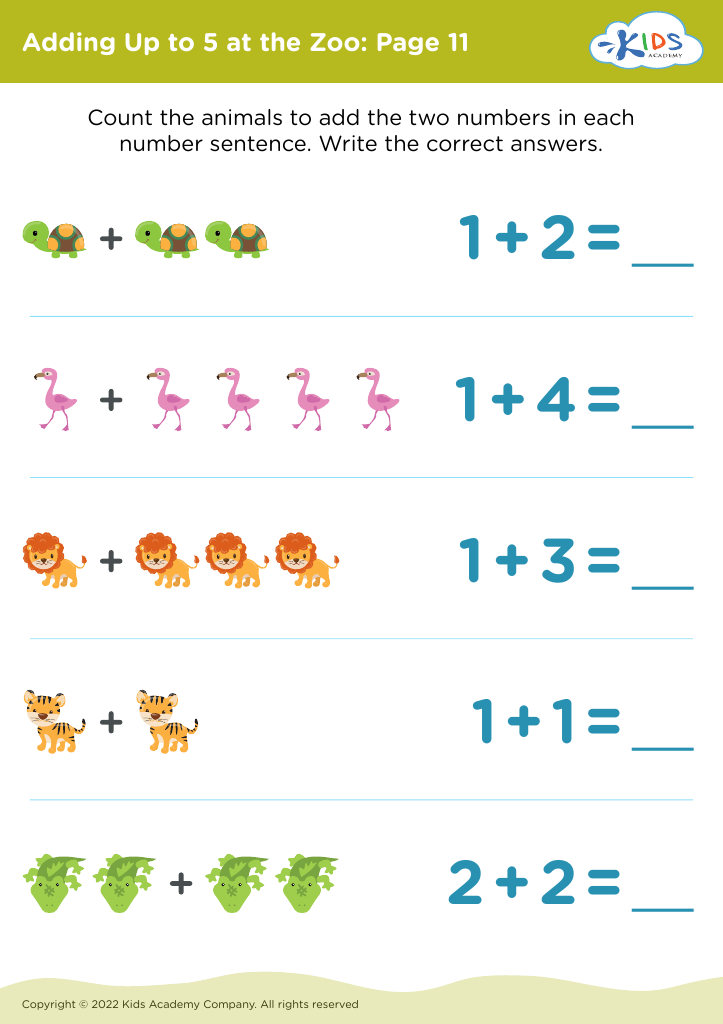Improves number recognition Math Worksheets for Ages 3-8
3 filtered results
-
From - To
Enhance your child's number recognition with our engaging Math Worksheets designed for ages 3-8! These thoughtfully crafted activities help young learners identify and differentiate numbers in a fun and interactive way. Featuring colorful illustrations and age-appropriate challenges, our worksheets promote early math skills, boosting confidence and foundational knowledge. Each printable resource emphasizes visual and tactile learning, making it perfect for parents and educators alike. As children explore counting, matching, and number patterns, they'll develop critical thinking skills essential for future math success. Support your child’s educational journey today with our Improve Number Recognition worksheets! Start their adventure in learning now!
Improving number recognition in children aged 3-8 is essential for building a strong mathematical foundation. Early familiarity with numbers not only aids in academic success but also enhances cognitive development and critical thinking skills. Parents and teachers should prioritize number recognition because it lays the groundwork for understanding mathematical concepts, such as addition, subtraction, and problem-solving.
Number recognition supports essential skills, including counting, pattern recognition, and sequencing, which are vital for everyday life activities, like comparing prices or measuring ingredients. Developing this skill early on promotes confidence and encourages a positive attitude towards math, reducing math anxiety as children progress in their education.
Furthermore, early mathematical competence is linked to larger indicators of success later in life, such as self-efficacy, persistence, and even future career opportunities in STEM fields. Engaging children in fun and interactive activities, games, and real-world applications makes the learning process enjoyable, fostering a love for math.
Ultimately, by investing time and resources into improving number recognition, parents and teachers can equip children with valuable skills that are as crucial in the classroom as they are in daily life. Early math skills serve not only as building blocks for future learning but also as tools for navigating the world effectively.



















